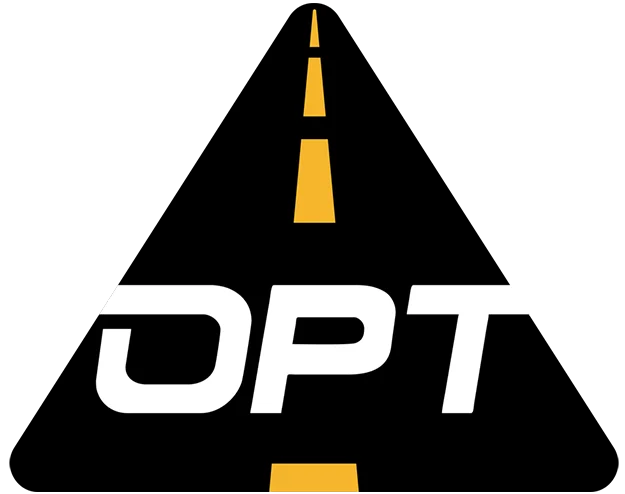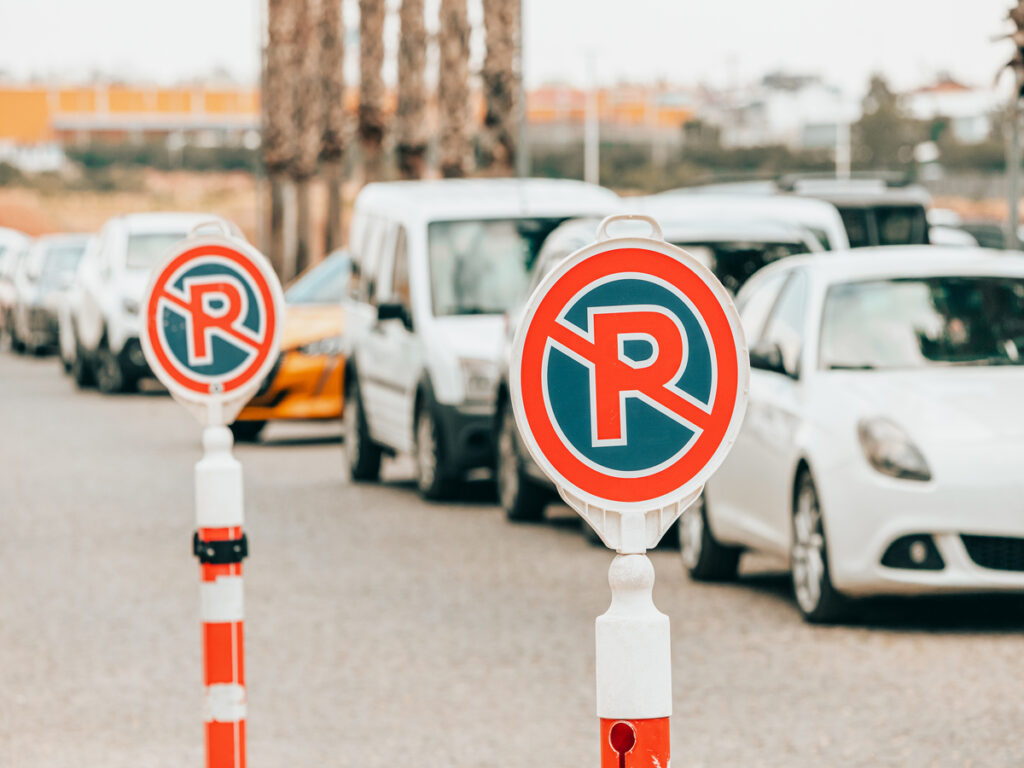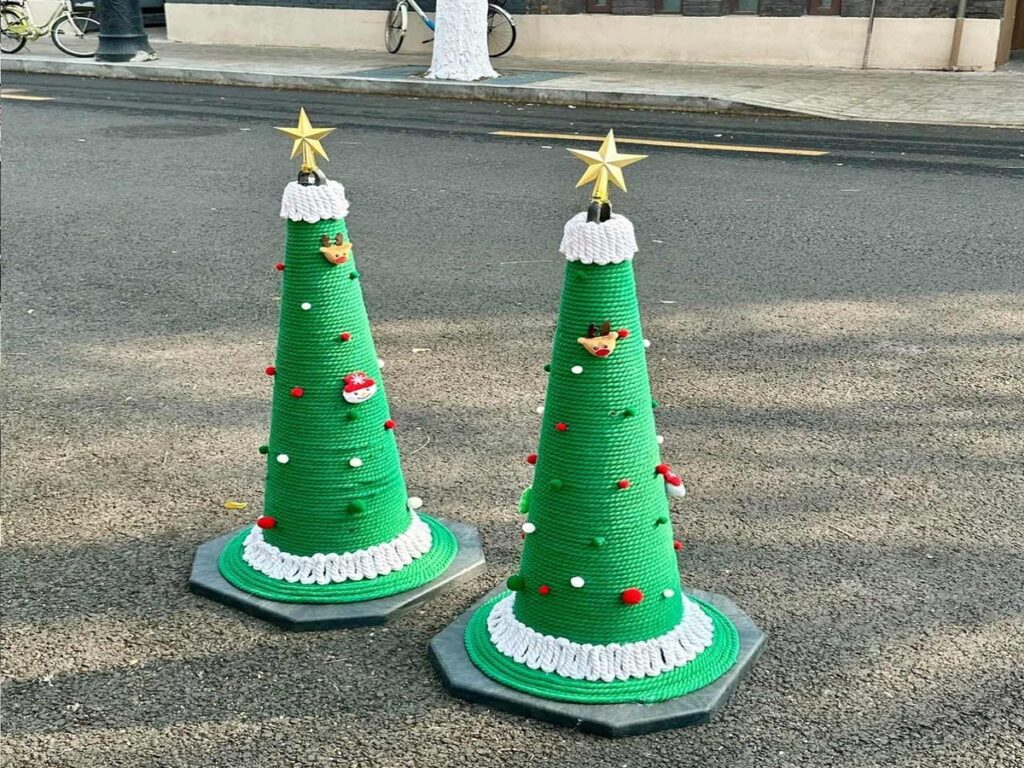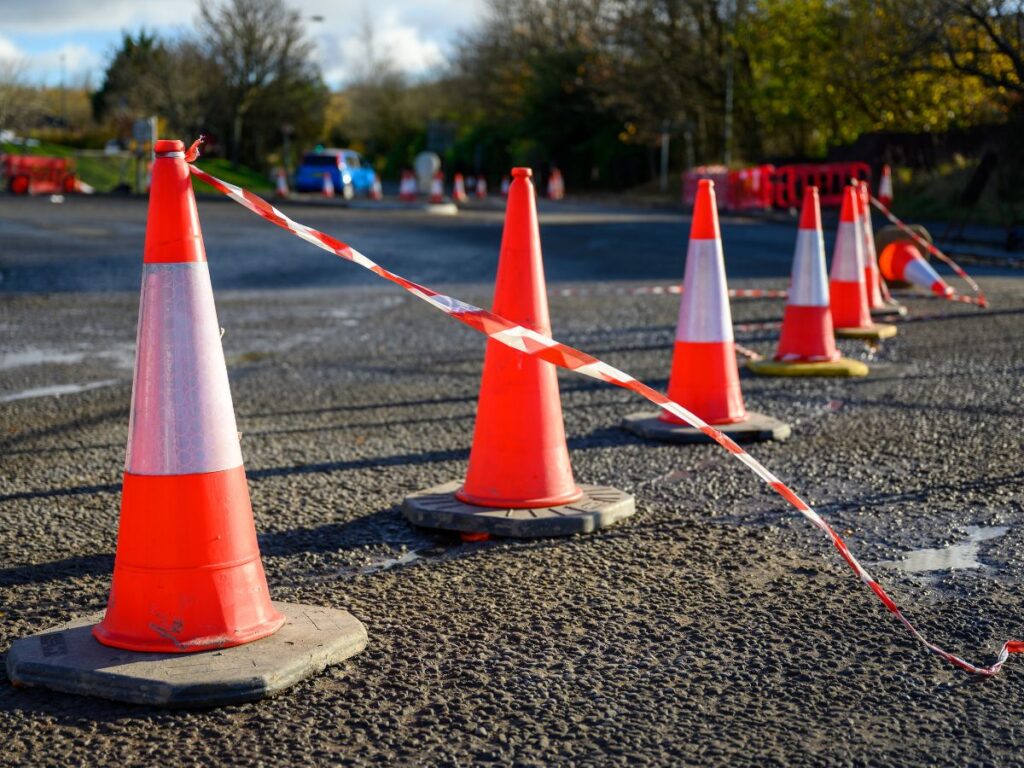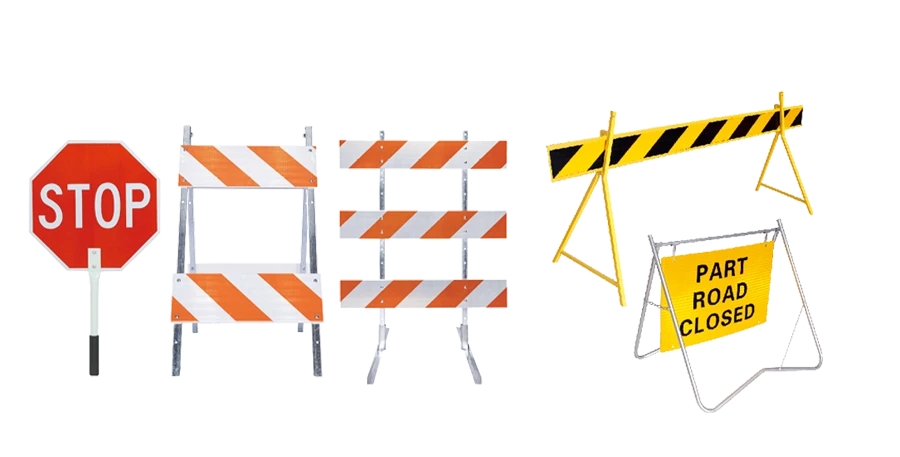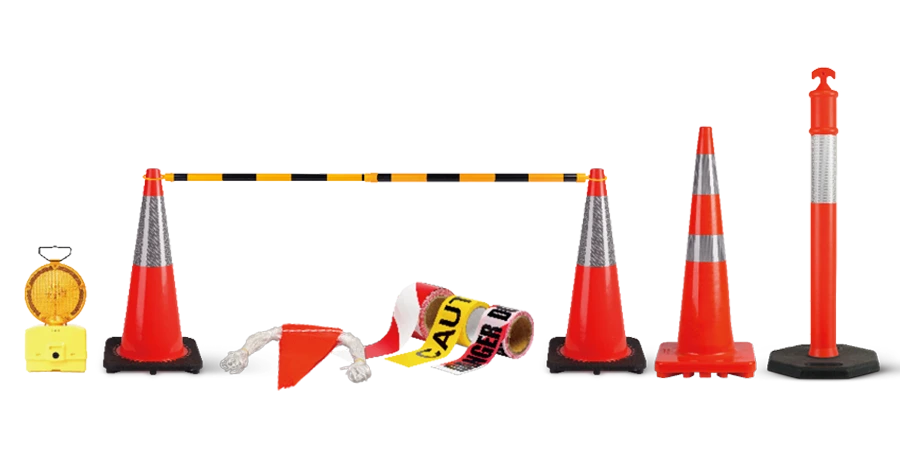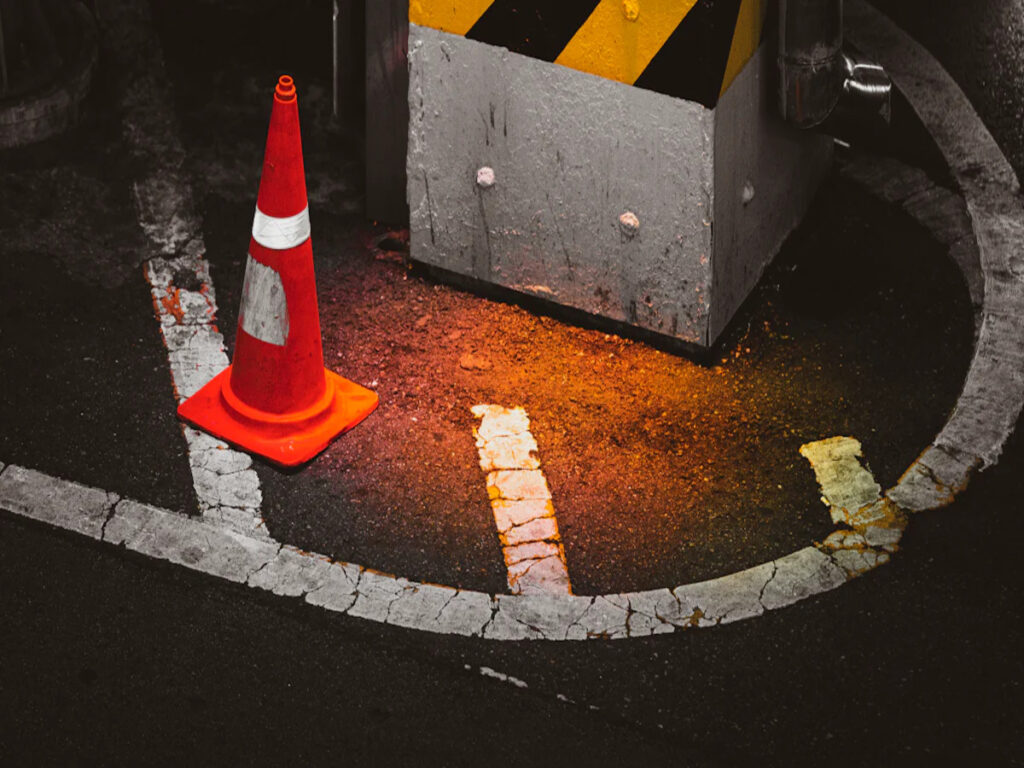
Luces de cono de tráfico son dispositivos especializados diseñados para mejorar la visibilidad en áreas donde la seguridad es crítica. Estas luces, a menudo equipado con tecnología LED, emitir un brillo estable o intermitente que hace que los conos de tráfico sean muy notables. Su brillante iluminación asegura que los conductores puedan identificar los peligros potenciales desde la distancia., Incluso en entornos desafiantes como zonas de construcción o túneles.
La baja visibilidad aumenta significativamente el riesgo de accidentes. Por la noche, faros de haz alto solo proporcione visibilidad hasta 500 pies, mientras que los faros estándar lo reducen a 250 pies. Esta limitación deja a los conductores con menos tiempo para reaccionar a los obstáculos.. Las luces del cono de tráfico abordan este problema mejorando la visibilidad y captar la atención con sus luces intermitentes, especialmente en condiciones peligrosas como la niebla, lluvia, o oscuridad.
Mediante el uso de estas luces de cono de tráfico, you help create safer roads and reduce the likelihood of accidents in high-risk areas.
What Are Traffic Cone Lights?
Definición y propósito
Traffic cone lights are specialized lighting devices designed to enhance the visibility of conos de trafico. These lamps play a vital role in traffic control by ensuring that drivers and pedestrians can easily spot traffic safety cones, especially in low-light or hazardous conditions. Their primary purpose includes:
- Enhanced visibility: The LED lights make these cones highly visible, especialmente durante las condiciones nocturnas o de poca luz.
- Attention-grabbing: The flashing lights attract attention and alert drivers to potential hazards or changes on the road.
- De larga duración: Energy-efficient LED lights ensure extended use before requiring battery replacement.
By using traffic cone lamps, you contribute to safer roadways and more effective traffic control.
Components and Functionality
Las luces superiores del cono de tráfico dependen de materiales y tecnologías avanzadas para ofrecer un rendimiento confiable. Estos componentes incluyen:
| Material/tecnología | Descripción |
|---|---|
| Luces LED | Integrados dentro de conos de tráfico, Proporcionar una mejor visibilidad y características que llamen la atención. |
| CLORURO DE POLIVINILO | Material resistente utilizado para la construcción de conos de tráfico. |
| Potencia de la batería | Poderes las luces LED, garantizar la funcionalidad en diversas condiciones. |
Las luces LED emiten un brillante, estable, o brillo intermitente, haciéndolos ideales para dispositivos de control de tráfico. La construcción duradera de PVC de conos de tráfico asegura la estabilidad, Mientras que las lámparas con batería proporcionan una iluminación constante. Juntos, Estos componentes crean una solución confiable para mejorar la seguridad vial..
Compatibilidad con conos de tráfico
Las lámparas de cono de tráfico están diseñadas para encajar perfectamente con conos de tráfico estándar. Their lightweight design allows for easy installation on top of reflective safety cones without compromising stability. Most lamps feature universal fittings, making them compatible with a wide range of traffic safety cones. This compatibility ensures that you can use these lamps in various traffic control scenarios, from construction zones to emergency sites. By pairing the right lamp with your traffic cone, you maximize visibility and enhance safety in any environment.
OPTsigns not only provides safety cones but also safety cone top lights, ensuring you have everything you need for complete traffic safety solutions.
Why Are Traffic Cone Lights Crucial for Safety?
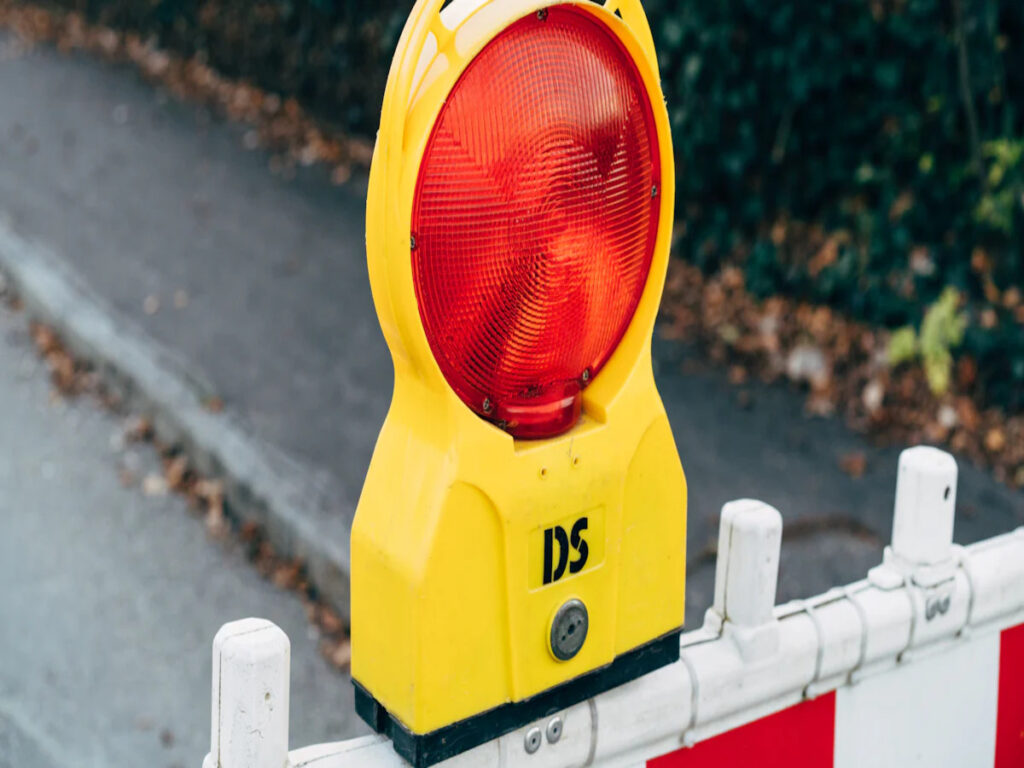
Mejora de la visibilidad en condiciones de poca luz
Traffic cone lamps play a vital role in ensuring optimal visibility during nighttime or in dimly lit areas. Su Tecnología LED emits bright, luces intermitentes que llaman la atención y alerta a los conductores sobre los peligros potenciales. Esta característica se vuelve especialmente importante cuando los faros estándar no iluminan los objetos distantes de manera efectiva. Por ejemplo, en zonas de construcción o sitios de emergencia, Estas lámparas hacen que los conos de seguridad reflectantes se destaquen, Ayudando a los conductores a navegar de manera segura.
La siguiente tabla resalta los beneficios clave de seguridad del uso de luces de cono de tráfico en tales escenarios:
| Beneficio de seguridad | Descripción |
|---|---|
| Enhanced visibility | The LED lights make these cones highly visible, especialmente durante las condiciones nocturnas o de poca luz. |
| Attention-grabbing | The flashing lights attract attention and alert drivers to potential hazards or changes on the road. |
By using traffic cone lamps, te aseguras de que se sigan los protocolos de seguridad, Reducción del riesgo de accidentes en entornos de poca luz.
Importancia en el clima adverso
Condiciones climáticas adversas como la lluvia, niebla, o la nieve puede reducir significativamente la visibilidad, Hacer las carreteras más peligrosas. Las lámparas de cono de tráfico están diseñadas específicamente para abordar estos desafíos. Su brillante iluminación corta la niebla y la lluvia, Asegurar que los conos de tráfico permanezcan visibles para los conductores. Esta característica es esencial para mejorar la seguridad en condiciones peligrosas., especialmente en zonas de trabajo o áreas de control de tráfico temporal.
- Las lámparas de cono de tráfico mejoran la visibilidad en las condiciones climáticas de poca luz y adversos.
- Aseguran la seguridad en zonas peligrosas, como obras viales y sitios de construcción..
- Su diseño aborda la necesidad de visibilidad durante el clima desafiante como la lluvia o la niebla.
Incorporando estas lámparas en sus dispositivos de control de tráfico, creas un entorno más seguro para conductores y trabajadores.
Aplicaciones en zonas de alto riesgo
Las lámparas de cono de tráfico son indispensables en zonas de alto riesgo donde la seguridad es una prioridad superior. Estas lámparas se usan comúnmente en sitios de construcción., Proyectos de mantenimiento de carreteras, y áreas de respuesta a emergencias. Ayudan a redirigir el tráfico, Cierres de Mark Lane, y alerta a los conductores de riesgos como trincheras abiertas o terreno desigual. Sus luces intermitentes aseguran que los conductores y los peatones sean conscientes de los cambios en los patrones de tráfico.
Algunos escenarios de la vida real en los que las lámparas de cono de tráfico han demostrado ser efectivas incluyen:
- Zonas de construcción de carreteras donde los conos canalizan el tráfico y reducen la congestión.
- Proyectos de mantenimiento de carreteras que utilizan conos para crear cierres de carril visibles.
- Zonas de trabajo urbano donde los conos establecen vías seguras para los peatones.
- Las áreas de respuesta de emergencia donde los conos crean un perímetro seguro para los respondedores.
Implementando lámparas de cono de tráfico en estas zonas de alto riesgo, Mejora la seguridad y se asegura de que se mantengan protocolos de seguridad.
Escenarios de la vida real que demuestran su importancia
Las luces del cono de tráfico demuestran su valor en muchas situaciones de la vida real. Su capacidad para mejorar la visibilidad y alertar a los impulsores de los peligros los hace indispensables en condiciones peligrosas. A continuación se presentan algunos escenarios en los que estas luces juegan un papel crucial en el mantenimiento de la seguridad..
- Proyectos de construcción nocturnos
Imagina un equipo de construcción que trabaja en una carretera por la noche. Sin iluminación adecuada, Los conductores no pueden notar las zonas de trabajo hasta que sea demasiado tarde. El cono de semáforo con luz intermitente asegura que los conos se destacen, incluso desde la distancia. Esta visibilidad ayuda a los conductores a ajustar su velocidad y evitar los peligros potenciales., Mantener a los trabajadores y conductores seguros. - Áreas de respuesta de emergencia
Durante emergencias, Los respondedores a menudo establecen perímetros temporales para administrar el tráfico y proteger la escena. En estas situaciones, Los conos de semáforo se vuelven esenciales. Su brillante iluminación asegura que los conos de semáforo permanezcan visibles en condiciones peligrosas como la lluvia o la niebla. Esta visibilidad ayuda a los conductores a navegar de forma segura por el área., Reducción del riesgo de accidentes secundarios. - Mantenimiento de la carretera en clima adverso
Imagine un equipo que repara una carretera durante la fuerte lluvia. Las condiciones húmedas hacen que sea más difícil para los conductores ver conos que marcan las zonas de trabajo. Luces de cono de tráfico cortadas a través de la lluvia, Asegurar que los conos sigan siendo notables. Esta visibilidad adicional previene los accidentes y garantiza un flujo de tráfico suave alrededor del sitio de mantenimiento. - Eventos especiales y control de multitudes
Los grandes eventos a menudo requieren rutas de reducción de tráfico o peatones temporales. Las luces de cono de tráfico ayudan a guiar vehículos y personas de forma segura a través de estas áreas. Sus luces intermitentes llaman la atención, Asegurar que todos sigan las rutas designadas sin confusión.
En cada uno de estos escenarios, Las luces del cono de tráfico mejoran la seguridad al mejorar la visibilidad y llamar la atención sobre los peligros potenciales. Su papel en las zonas de trabajo y otras áreas de alto riesgo no pueden ser exageradas.
Características clave de las lámparas de cono de tráfico
Tecnología y brillo LED
Las lámparas de cono de tráfico utilizan tecnología LED avanzada para ofrecer brillo y eficiencia energética excepcionales. Estas luces aseguran una alta visibilidad, Incluso desde largas distancias, haciéndolos ideales para condiciones de poca luz. Las luces intermitentes llaman la atención, ayudar a los conductores a identificar los peligros rápidamente. Los LED consumen energía mínima, que extiende la duración de la batería y reduce la necesidad de reemplazos frecuentes. Muchos modelos también ofrecen opciones con energía solar, atender a usuarios ecológicos.
Al seleccionar lámparas de cono de tráfico, priorizar a aquellos que cumplen con los estándares de seguridad como Ansi. These certifications guarantee that the lamps meet quality and performance criteria essential for road safety. By choosing LED lamps, you enhance visibility and improve traffic control in construction zones or other high-risk areas.
Durabilidad y resistencia al clima
Traffic cone lamps are built to withstand harsh environments. High-quality PVC materials ensure flexibility and resilience. These reflective safety cones can bend under pressure and return to their original shape, even after being run over. The lamps also feature excellent moisture and Resistencia a los rayos UV, maintaining their bright color and structural integrity over time.
Durable designs allow these lamps to perform well in extreme temperatures, Desde el calor abrasador hasta el frío frío. Their sturdy bases prevent tipping, ensuring stability in high-traffic areas. This durability makes them reliable for long-term use in construction sites, emergency zones, y otras condiciones exigentes.
Opciones de duración de la batería y energía
La duración de la batería es un factor crítico al elegir lámparas de cono de tráfico. Diferentes modelos ofrecen rangos variables de duración de la batería para satisfacer sus necesidades. Por ejemplo:
| Modelo | Tipo de batería | Rango de duración de la batería |
|---|---|---|
| Modelo 212 12V Tipo B-luz | Dos 6 Terminal de primavera de voltios | Arriba a 24 días |
| Modelo 212-3LW Tipo B-luz | Dos o cuatro baterías de células D | Encima 60 días (2 baterías), Encima 120 días (4 baterías) |
| Luces de seguridad del cono LED | Dos baterías AA | No especificado |
Tecnología LED de bajo consumo de energía Extiende aún más la duración de la batería, Reducción de los costos operativos. Algunas lámparas también ofrecen opciones con energía solar, que eliminan la necesidad de reemplazos de baterías frecuentes. Estas características hacen que las lámparas de cono de tráfico sean una opción sostenible y rentable para el control del tráfico y la seguridad..
Diseño liviano e instalación fácil
Las lámparas de cono de tráfico están diseñadas con una estructura liviana para facilitarlas e instalarlas. Su tamaño compacto asegura que pueda llevarlos y colocarlos sin dificultad.. Esta característica es especialmente útil cuando necesita configurar varias lámparas en poco tiempo.. El diseño liviano también reduce la tensión, permitiéndole trabajar de manera eficiente en situaciones de alta presión como emergencias o zonas de construcción.
Instalar lámparas de cono de tráfico es un proceso sencillo. La mayoría de los modelos cuentan con accesorios universales que le permiten adjuntarlos de forma segura a los conos de tráfico estándar. Simplemente coloque la lámpara en la parte superior del cono de semáforo y asegúrese de que se bloquee en su lugar. Esta configuración rápida ahorra tiempo y garantiza que las lámparas se mantengan estables, Incluso en condiciones de viento o áreas de tráfico pesado.
La simplicidad de la instalación significa que no necesita herramientas o capacitación especializadas.. Si eres un trabajador de carretera, organizador de eventos, o respondedor de emergencia, Puede implementar fácilmente estas lámparas para mejorar la seguridad.. Su diseño fácil de usar asegura que cualquiera pueda instalarlos correctamente, minimizar los errores y maximizar la visibilidad.
La naturaleza liviana y fácil de instalar de las lámparas de cono de tráfico las hace ideales para varias aplicaciones. Desde marcas de zonas de construcción hasta vehículos de guía durante eventos especiales, Estas lámparas proporcionan una solución confiable. Sus luces intermitentes llaman la atención, Asegurar que los conductores y los peatones noten el cono de semáforo y navegen de manera segura. Eligiendo lámparas de cono de tráfico, Mejora la seguridad mientras ahorra tiempo y esfuerzo.
Uso adecuado de las luces de cono de tráfico
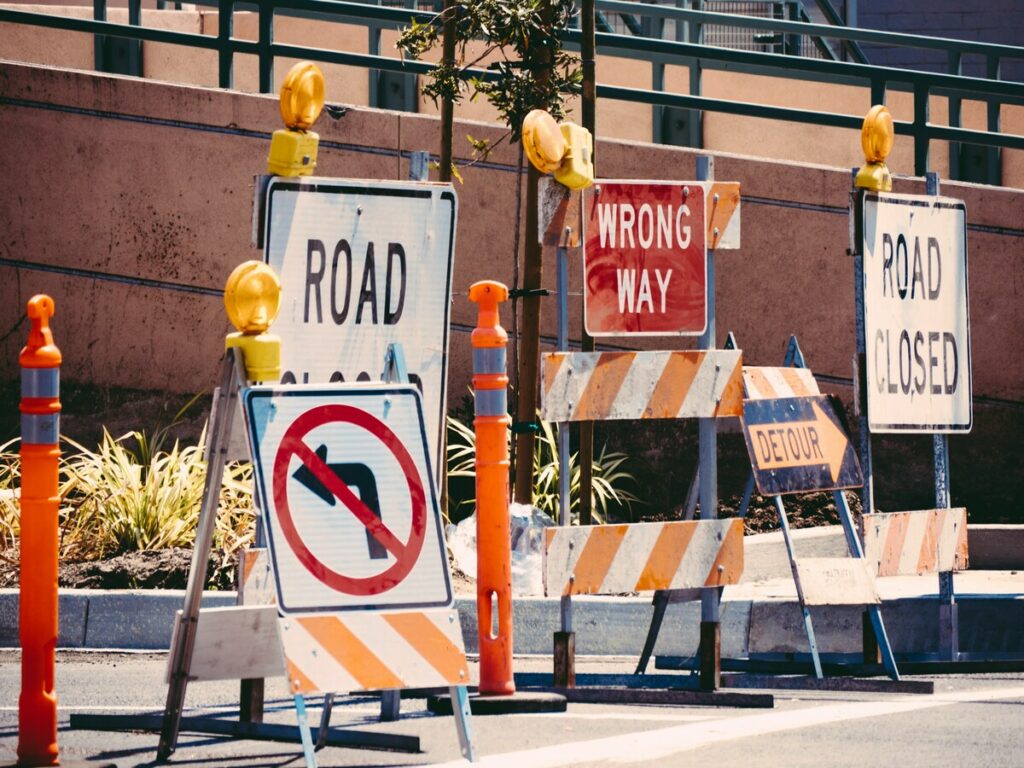
Pautas de instalación
La instalación de las luces de cono de tráfico garantiza correctamente su efectividad para mejorar la seguridad. Siga estos pasos para lograr resultados óptimos:
- Coloque la luz de forma segura sobre el cono para evitar que caiga durante el uso.
- Asegúrese de que la lámpara se bloquee en su lugar para resistir factores ambientales como el viento o la lluvia.
- Inspeccione regularmente los conos y las luces en busca de daños o suciedad.. Limpiarlos para mantener la visibilidad, Especialmente por la noche.
- Use materiales de alta calidad como PVC o caucho para conos para garantizar la durabilidad y la estabilidad.
La instalación adecuada minimiza los riesgos y garantiza que las luces funcionen como se pretende en zonas de trabajo u otras áreas de alto riesgo.
Las mejores prácticas para la colocación
La colocación adecuada de las luces del cono de tráfico es esencial para un control de tráfico efectivo. Para maximizar la seguridad, Considere estas mejores prácticas:
- Mantener un espacio adecuado entre los conos para evitar el hacinamiento o el bajo espacio. Demasiados conos pueden confundir a los conductores, mientras que muy pocos pueden dejar la brecha en guía.
- Colocar los conos lo suficientemente cerca como para evitar que los vehículos ingresen a las áreas restringidas, pero permitan suficiente espacio para que los conductores reaccionen y ajusten.
- Explicar factores ambientales como el viento y las superficies desiguales. Asegúrese de que los conos permanezcan estables para evitar accidentes.
- Limpiar regularmente e inspeccionar los conos y las luces para mantener su visibilidad y efectividad.
Siguiendo estas prácticas, Creas un ambiente más seguro en las zonas de trabajo y otras áreas peligrosas..
Consideraciones de espaciado y altura
La colocación adecuada de los conos y las luces de tráfico implica una atención cuidadosa al espacio y la altura.. El espacio debe proporcionar una guía clara sin conductores abrumadores. Por ejemplo, El cono de semáforo en las zonas de trabajo debe estar espaciado para crear una ruta visible mientras evita que los vehículos ingresen a las áreas restringidas.
La altura también juega un papel crucial. Las luces del cono de tráfico deben quedarse a un nivel que garantice la visibilidad tanto para los conductores como para los peatones.. Esta colocación ayuda a que las luces se destaquen, Incluso en clima adverso o en condiciones de poca luz.
Enfocándose en el espacio y la altura, Asegura la colocación adecuada de conos y luces, Mejorar la seguridad y mejorar el control del tráfico.
Consejos de mantenimiento para lámparas de cono de tráfico
Limpieza y cuidado
La limpieza y el cuidado adecuados son esenciales para mantener la efectividad de las lámparas de cono de tráfico. La suciedad y la mugre pueden reducir la visibilidad de los materiales reflectantes, Especialmente por la noche. Para mantener sus lámparas en condiciones superiores:
- Limpie las lámparas y los conos de tráfico regularmente para eliminar la suciedad y los escombros.
- Use mangas o cubiertas de cono para proteger los conos de factores ambientales como el polvo y la humedad.
- Almacene los conos en un área protegida cuando no esté en uso para evitar la exposición prolongada al clima duro.
- Inspeccionar por daños menores como grietas o abolladuras y repararlos de inmediato con adhesivo o sellador.
Estas prácticas aseguran que las superficies reflectantes y las luces intermitentes sigan siendo efectivas, Reducción del riesgo de peligros en condiciones de poca luz.
Verificaciones de batería y reemplazo
El mantenimiento de la batería es crucial para el rendimiento constante de las lámparas de cono de tráfico. Los controles regulares lo ayudan a evitar fallas inesperadas durante situaciones críticas. Siga estos pasos para garantizar un rendimiento óptimo de la batería:
- Inspeccione el compartimento de la batería en busca de corrosión o daño.
- Reemplace las baterías tan pronto como note las luces de atenuación o el brillo reducido.
- Use baterías de alta calidad para extender la vida útil de las lámparas.
- Considere el uso de opciones recargables o con energía solar para una eficiencia de rentabilidad y sostenibilidad.
Manteniendo la fuente de energía, se asegura de que las lámparas proporcionen iluminación confiable en todas las condiciones.
Almacenamiento adecuado para la longevidad
Almacenar las luces del cono de tráfico extiende correctamente su vida útil y mantiene su funcionalidad. Siga estas mejores prácticas para el almacenamiento adecuado:
- Limpie e inspeccione las lámparas antes de almacenarlas para eliminar la suciedad y asegúrese de que estén en buenas condiciones.
- Almacenar lámparas y conos en un seco, Área protegida para protegerlos del clima extremo.
- Use materiales de alta calidad como PVC o caucho para conos de seguridad reflectantes para garantizar la durabilidad.
- Dirección de señales de negligencia, tales como colores de decoloración o grietas, Para mantener las lámparas’ eficacia.
El almacenamiento adecuado previene el daño y garantiza que sus lámparas permanezcan listas para su uso cuando sea necesario. Este enfoque lo ayuda a ahorrar costos y mantener los estándares de seguridad en el control del tráfico..
Las luces del cono de tráfico juegan un papel vital en la mejora de la seguridad vial. Su iluminación LED brillante mejora la visibilidad, Especialmente en condiciones de poca luz o adversa. Las luces intermitentes llaman la atención, Alertar a los conductores sobre los peligros y los cambios en los patrones de tráfico. Estas características reducen el riesgo de accidentes y garantizan una navegación más suave en zonas de alto riesgo.
El uso y el mantenimiento adecuados de estas luces mejoran aún más su efectividad. Limpieza regular, controles de batería, y la colocación correcta asegúrese de que funcionen de manera confiable. Mediante el uso de luces de cono de tráfico correctamente, creas entornos más seguros para conductores, peatones, y trabajadores por igual.
Invertir en luces de cono de tráfico de alta calidad es un paso simple pero poderoso para prevenir accidentes y garantizar la visibilidad en la carretera.
